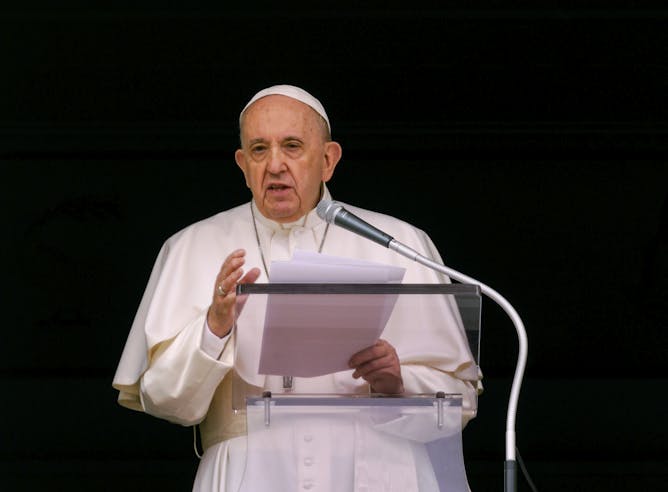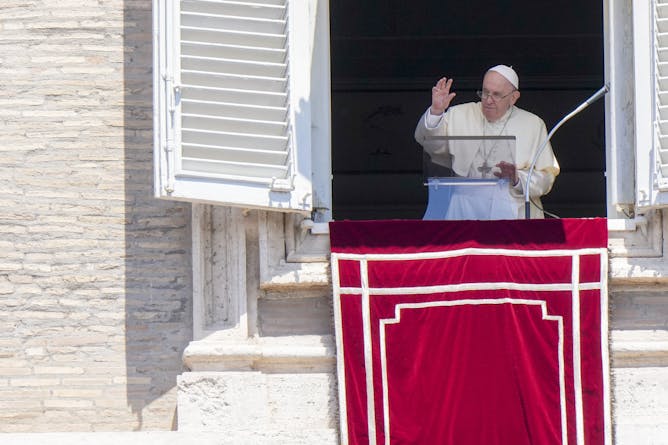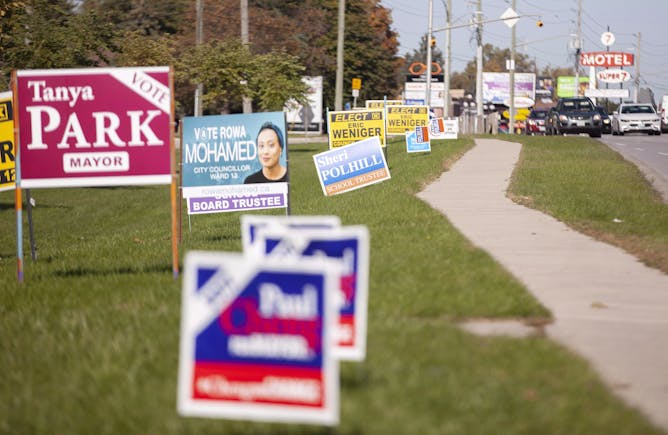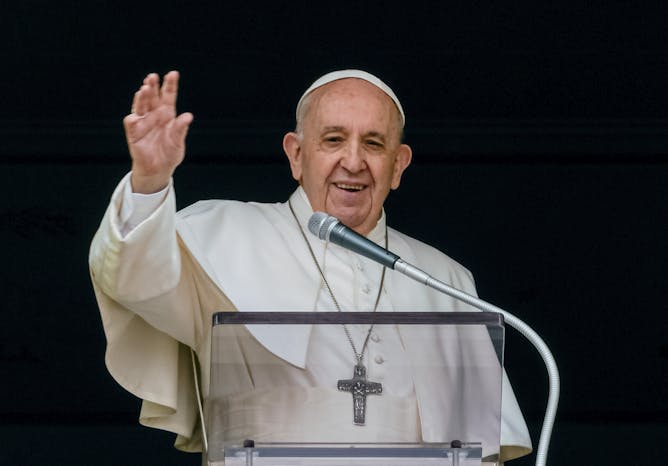|
|
|
|
Pope Francis’ upcoming trip to Canada will again provide an opportunity for him to listen to and speak with Indigenous people.
The visit relates to the Roman Catholic-run residential schools where First Nations, Métis and Inuit children were taken from their families, with many subjected to multiple abuses and some never making it home.
Today in The Conversation, Jonathan Hamilton-Diabo of Victoria University at the University of Toronto briefly gets into the complicated relationship between Indigenous communities and the church. As a Mohawk and someone who was raised in the Catholic tradition, Hamilton-Diabo is in a unique position to have this conversation.
He writes about the arrival of missionaries, how some opted for “assimilationist strategies” while others accepted the inclusion of few traditional medicines and trickster stories. He notes despite the wide perception however, not all Indigenous people hate the church.
Saying there are varying degrees of Indigenous participation within religion across Canada, Hamilton-Diabo concludes “It would be fair to say that within these circles, there may be challenges with being part of an organization that contributed to the loss of language, culture, family and community relationships.”
Also today:
All the best.
|

|
Haley Lewis
Culture + Society Editor | Producer, Don't Call Me Resilient
|
|

A key question we should be asking during his upcoming visit is: How will an apology contribute to healing, or will it just deepen distrust in the church?
(AP Photo/Domenico Stinellis, file)
Jonathan Hamilton-Diabo, University of Toronto
It is reasonable to expect that any apology from the Pope will be met with mixed responses.
|

Pope Francis’s visit to Canada will offer him an opportunity to apologize for the harms of the Catholic-run Indian Residential Schools.
(AP Photo/Andrew Medichini)
Marie-Pierre Bousquet, Université de Montréal
Pope Francis’ visit concerns all Canadians. It’s about our relationship to history and the construction of a state that marginalized Indigenous people and tried to assimilate them.
|

The data we generate online and using apps could be used to inform a digital version of ourselves.
(Shutterstock)
Jordan Richard Schoenherr, Concordia University
Digital twins could be used in the future to predict and influence our behaviour, but this raises concerns about who owns our data and how we can access and control it.
|

Traffic passes by election signs on Wellington Road in London, Ont., on Oct. 22, 2018, municipal election day in Ontario.
THE CANADIAN PRESS/Geoff Robins
Zachary Spicer, York University, Canada
Attracting more diverse municipal candidates who represent Canada’s population requires better pay. Right now, city council jobs favour aging white men who are retired or independently wealthy.
|

Meaning is found in love and risk, not in superpowers.
(Marvel Studios)
Reginald Wiebe, Concordia University of Edmonton; Dorothy Jean Woodman, University of Alberta
In the latest ‘Thor’ movie, the character Jane Foster raises questions about the impact of cancer on ideas of worthiness, responsibility and power — and what it means to be a superhero.
|
La Conversation Canada
|

Le Pape François salue une foule de fidèles et de pèlerins, le 6 juin 2021, au Vatican. Le pape a alors exprimé sa tristesse à suite de la découverte au Canada des restes de 215 élèves d'un pensionnat.
(AP Photo/Domenico Stinellis)
Marie-Pierre Bousquet, Université de Montréal
La visite du pape François concerne tous les Canadiens. Son enjeu est notre rapport à l’histoire, celle de la construction d’un État qui a marginalisé les Autochtones et tenté de les assimiler.
|
|
|
Business + Economy
|
-
Jerome Monne, ESSCA École de Management; Ariane Agunsoye, Goldsmiths, University of London; Dimitris Sotiropoulos, The Open University; Janette Rutterford, The Open University
Research shows differences in how people set savings goals that could contribute to a wealth gap between men and women in the UK.
|
|
Education
|
-
Tommy Soesmanto, Griffith University; Danielle Logan-Fleming, Griffith University; Gede Rasben Dantes, Universitas Pendidikan Ganesha; Kanchana Kariyawasam, Griffith University; Lanita Winata, Griffith University; Md Sayed Iftekhar, Griffith University
Seven key recommendations for mitigating the impacts of learning loss during the pandemic
|
|
Health
|
-
Jill Roberts, University of South Florida
Current expiration date system leads to confused consumers and wasted food.
|
|
|
|
| |
| |
| |
| |
|
|
|
|
|
|
|